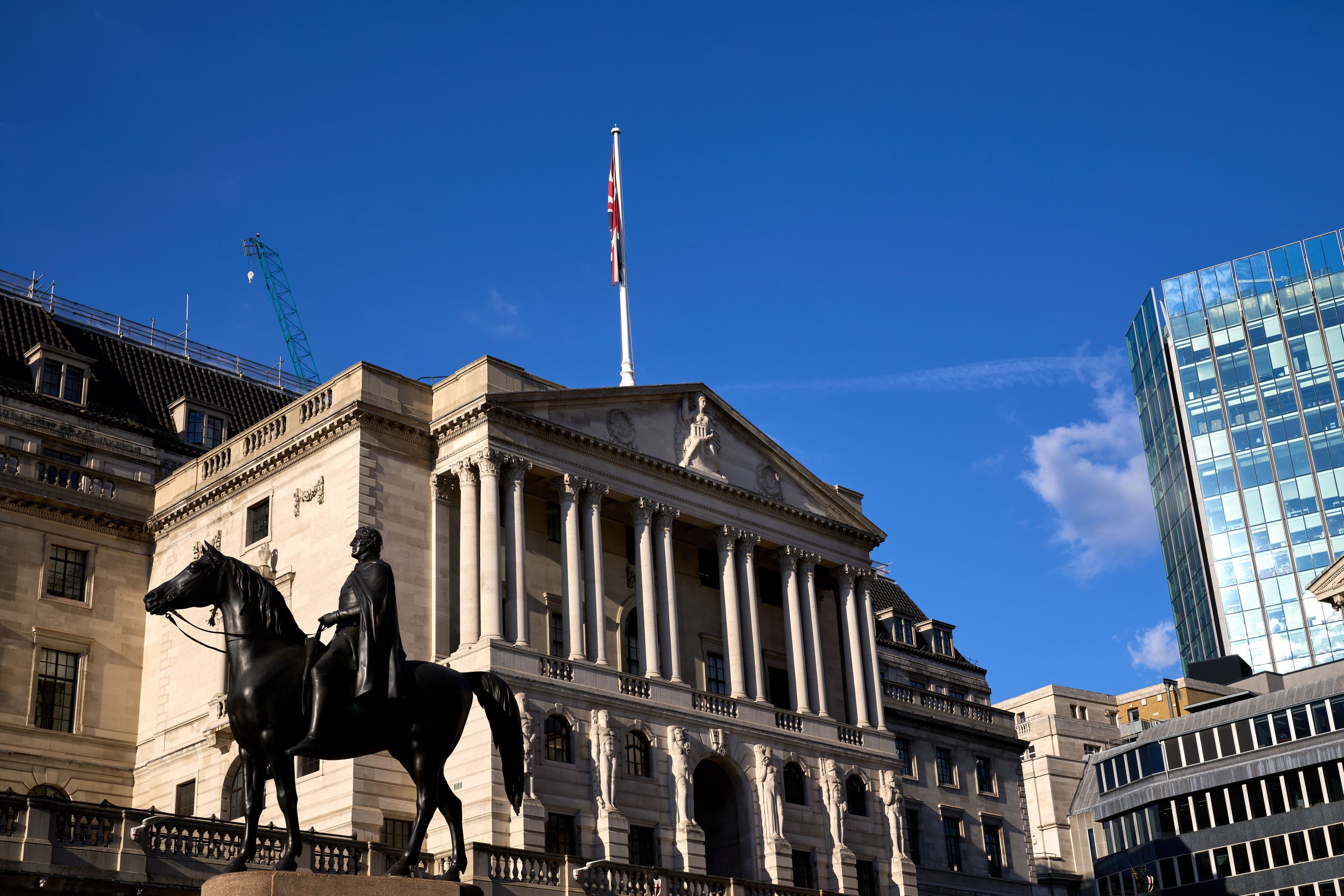Firms must ‘prepare’ for shocks to global financial markets, Bank warns
But the UK banking system remains strong enough to weather tougher economic conditions, the Financial Policy Committee said.

Your support helps us to tell the story
From reproductive rights to climate change to Big Tech, The Independent is on the ground when the story is developing. Whether it's investigating the financials of Elon Musk's pro-Trump PAC or producing our latest documentary, 'The A Word', which shines a light on the American women fighting for reproductive rights, we know how important it is to parse out the facts from the messaging.
At such a critical moment in US history, we need reporters on the ground. Your donation allows us to keep sending journalists to speak to both sides of the story.
The Independent is trusted by Americans across the entire political spectrum. And unlike many other quality news outlets, we choose not to lock Americans out of our reporting and analysis with paywalls. We believe quality journalism should be available to everyone, paid for by those who can afford it.
Your support makes all the difference.Global financial markets are vulnerable to shocks following a “spike in volatility” over the summer, the Bank of England has warned.
But the UK banking system remains strong enough to weather tougher economic conditions and support households and businesses, the Bank’s Financial Policy Committee (FPC) said in its latest report.
Risks to UK financial stability are broadly unchanged since the last report in June, the FPC found.
But, on a global scale, uncertainty about the geopolitical environment and the outlook for the economy remains elevated.
The review comes amid heightened tensions in the Middle East, with Israel this week launching ground offensives in Lebanon.
The FPC said there was a “short-lived spike in volatility and falls in equity indices across global financial markets in early August”.
It was driven by disappointing news including weaker-than-expected jobs data in the US and financial results from artificial intelligence-focused technology giants.
This was followed by the release of positive macroeconomic news, which prompted the majority of asset prices to quickly return to “stretched” levels afterwards.
“Markets remain susceptible to a sharp correction, which could affect the cost and availability of credit to UK households and businesses, with investors sensitive to short-term developments in a challenging global risk environment,” the report said.
Businesses and banks need to be “prepared” for “severe but plausible stresses”, it warned.
Meanwhile, the committee said mortgage-holders continue to be resilient to higher interest rates, with home loan deals starting to come down in recent months.
But it flagged that some lower-income households and renters remain under pressure.
About a third of mortgage-holders have not yet refinanced on to higher interest rates.
Furthermore, while UK businesses have also shown to be resilient to worsening economic conditions, there are “pockets of vulnerability” including among private equity-backed firms and SMEs.
Insolvencies tend to be concentrated among small businesses in vulnerable sectors including construction, wholesale and retail trade, accommodation and food services.